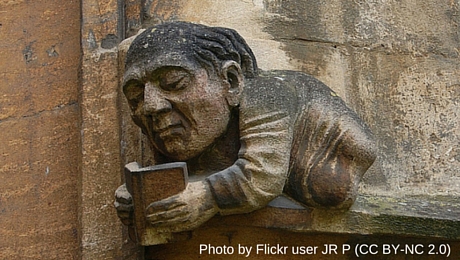BY ALVIN BURSTEIN
Guest blogger Alvin Burstein is professor emeritus at the University of Tennessee, Knoxville, and past president of the Louisiana AAUP conference.
For many academics, members or not of the AAUP, the need to protect academic freedom and tenure is a rallying cry, and the organization has been stalwart in defending both. However, the public at large as well as business interests that find their way to seats on university governing boards tend to perceive both issues as expressions of professional self-interest. They are likely to see tenure as job protection and academic freedom as eschewing accountability, misunderstandings rooted in a growing consensus that the sole or most important justification for higher education is its income earning potential for the student.
 My September–October Academe article, “The AAUP and the Idea of the University,” argues otherwise [please note that this member-only article requires an AAUP login in order to access the full text]. Cardinal Newman, in his 19th century proposal for the first modern university, defined its purpose as cultivation of the intellect for its own sake, not vocational preparation. A century later, James Angell, president of Yale, agreed, defining the purpose of a university to be the unsettling of minds.
My September–October Academe article, “The AAUP and the Idea of the University,” argues otherwise [please note that this member-only article requires an AAUP login in order to access the full text]. Cardinal Newman, in his 19th century proposal for the first modern university, defined its purpose as cultivation of the intellect for its own sake, not vocational preparation. A century later, James Angell, president of Yale, agreed, defining the purpose of a university to be the unsettling of minds.
The contemporary notion of general education in today’s universities is the descendant of the notion that the institution has a goal beyond that of vocational preparation. The danger today is not just the erosion of academic freedom and tenure, but the fate of general education, increasingly eroded by the pressure to produce job-ready graduates.
To have weight beyond self-interest, academic freedom and tenure must be clearly related to a view of educational goals beyond that of vocational preparation. As Newman argued and Angell would agree, that requires what Robert Hutchins called a community of scholars, a kind of guild devoted to Newman’s goal. It devolves upon the members of that guild to clearly describe and defend that goal to the community at large.
Articles from the current and past issues of Academe are available online. AAUP members receive a subscription to the magazine, available both by mail and as a downloadable PDF, as a benefit of membership.



For a second, I thought this was going to be a response to Connor Friedersdorf in the Atlantic
Not a response to Friedersdorf, but Angell’s comment that higher education is about unsettling minds, as opposed to promoting comfort. AGB
I agree with AG Burstein’s statement that “academic freedom and tenure must be clearly related to a view of educational goals” defended by a “community of scholars,” whose members would explain this need to the “community at large.”